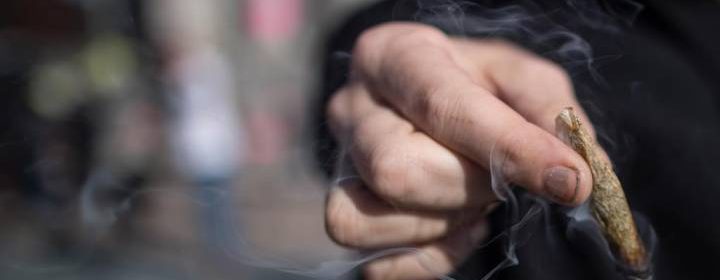Advocates hopeful Vancouver council will pass motion allowing access to low-cost pot in DTES

Advocates for people living with opioid addiction in Vancouver’s Downtown Eastside (DTES) are hopeful that a motion set to appear before Vancouver city council this week will lead to positive change and better treatment.
Council is set to debate a motion on Tuesday that calls on the city to relax its 2015 zoning rules, which prohibit sales of medical marijuana in the area, only exempting stores on Hastings and Main streets.
But Coun. Rebecca Bligh argues that restriction could be preventing safe opioid alternatives from reaching those who need them most.
Her motion cites a University of British Columbia study of 2,500 DTES drug users that found cannabis helped 20 per cent of them stay with treatment beyond six months.
Sarah Blyth, executive director of the Overdose Prevention Society, has been pushing the idea for years and says providing low-cost, addiction-free alternatives to hard drugs can save lives.
“We’re hopeful this can start a conversation and the idea that dispensaries that are related to medical (cannabis) can be part of the conversation rather than the more corporate model,” Blyth said.
“We don’t want it to be easier for people to access harder drugs than it is to access legal cannabis, especially for medical reasons.”
Blyth says cannabis can help people with addiction manage withdrawal symptoms like pain and nausea and can also help those suffering from illness on the streets.
“There are a lot of people who aren’t just recreational users,” she said. “They use it because they need it.”
Part of Blyth’s advocacy work for cannabis treatment has been spearheading the High Hopes Foundation, whose mission is to provide affordable and even free marijuana to those in need.
Their concerns went viral last September when Vancouver police shut down the society’s tables at the DTES street market and seized the marijuana that was for sale.
The seizure prompted swift social media backlash against the Vancouver Police Department, which insisted the move wasn’t a “raid” but, rather, meant to limit illegal drug trafficking.
Vancouver police are no longer in charge of enforcing cannabis-related offences, which are now overseen by the province’s community safety unit.
High Hopes has been looking to open a permanent location to sell medical-grade cannabis at a low cost but has been hampered both by the exclusion zone and rules surrounding cannabis shops under the Cannabis Act, which says no store can open within 300 metres of another location.
Four legal retail cannabis stores are in the process of obtaining provincial and municipal business licences to open in the DTES, but Blyth and Bligh both point out those stores may not end up selling marijuana at rates low enough to allow easy access for residents.
“I don’t have anything against these stores; they’re part of a growing economy,” Bligh said. “But the people we’re looking to help need to be seeing prices around $3 to $7 a gram, not $12 to $14.”
Bligh says her conversations with non-profits and advocates like Blyth have taught her that alternatives to opioids are desperately needed.
“These not-for-profits are the ones actually on the ground seeing day-to-day what’s working and not working, and they’re seeing that people are coming to them and saying: ‘I don’t want to take opioids. Can I have cannabis instead?’” Bligh said. “They want things that aren’t addictive.”
Bligh says her motion builds off the work done by the city’s opioid task force, which specifically targets issues prevalent in the DTES but also expanded to address addiction issues elsewhere in Vancouver.
The councillor is hopeful the motion will lead to further initiatives for the area, which is still the epicentre of the opioid crisis.
“I’ve spoken to a lot of people who say the DTES is getting worse,” she said. “We need to keep talking to people who are there and figuring out what they need.”
Sign up for our Cannabis IQ newsletter
© 2019 Global News, a division of Corus Entertainment Inc.
Source: Read Full Article

